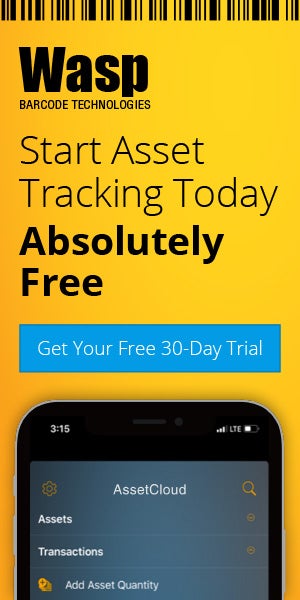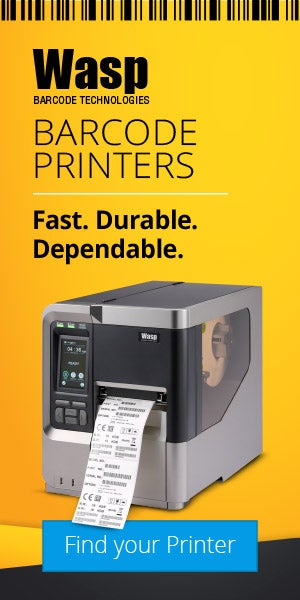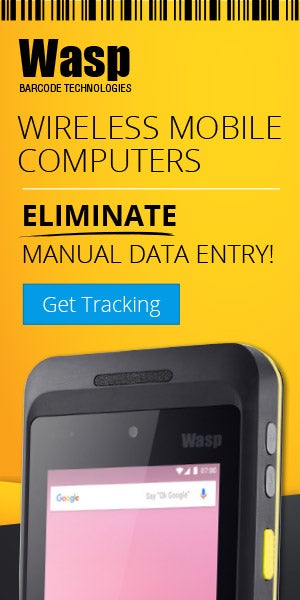Wasp Barcode Technologies: The Barcode Solution People
Ultimate Guide to Mobile Device Management Software

BYOD Ruling the Minds of Employees, Employers and Security Experts
Bring your own device, commonly referred to as BYOD, has become the most viable way for business workers to access company information on mobile devices. These devices can pull up database information, access dashboard features, and share documents without being confined to the office computer.
BYOD gained ground for remote workers and traveling business people to have real-time data available at the touch of their fingertips. For several years, employers began seeing the advantages because employees would use their own devices, curtailing the expenditures that businesses shelled out to purchase the equipment on the company budget. In August of 2014, Internet security company Webroot estimated that 61 percent of businesses allow employees to use personal laptops and smartphones to perform work-related tasks. Webroot's survey also estimates that half of these companies will exclusively adopt smartphones as the go-to BYOD device by 2017, according to
USA Today.
Yet what does this growing trend mean for IT management? Business owners need to find a way to allow different BYOD devices to gain access to network systems and make their systems compatible to different mobile operating platforms. They will also have to provide patches and upgrades specifically for
mobile devices, allow or restrict the use of certain mobile apps, and provide mobile security to prevent lost or stolen company data. To tackle this new sphere of mobile workstations, companies are adopting
mobile device management software and solutions.
What is Mobile Device Management Software?
Mobile device management software is an IT security application solution where the company can manage, monitor and secure devices that access the company's network applications. The software allows for all mobile devices -- despite the brand or mobile operating system -- to be managed by the IT department and abide by the policies set by the company. The application ensures that information transmitted between the company's networks to the mobile devices is secure and used as intended for workers to accomplish work activities.
[su_divider top="no" size="2"]
Mobile device management software is an IT security application solution where the company can manage, monitor and secure devices that access the company's network applications.
[su_divider top="no" size="2"]
This type of software allows for IT departments to remotely manage the mobile devices wherever they are located. Patches, fixes and updates can happen across all mobile devices instantaneously, allowing these mobile
application systems to communicate and access the network optimally. In addition, IT staff can monitor devices to restrict apps and features that can be used to compromise the company's systems, remotely
wipe information on stolen or lost devices, and encrypt data that is only accessible to specific employees.
How Does Mobile Device Management Software Work?

Mobile device management software is hosted as an in-house managed application or as a SaaS (software as a service) online hosted model. The mobile device becomes a client that accesses the company's servers through the use of a
client-agent application. The application is downloaded onto the device via an app, email or even an SMS message. It is installed so that the application can monitor the device to ensure that the user is following established policies or limits the user from using specific applications or features.
Occasionally, the device will phone in its location to the server. The IT staff can tell the mobile device management server to send instructions to the mobile device to make adjustments that coincide with the rules, behaviors and policies established by the company's servers and the mobile device management
software.
Basic mobile device management software will have the following features:
- policy management
- mobile application support
- inventory management
- telecom service management
- security management
Benefits to Mobile Device Management Software
The top benefit to this dynamic software is that it allows the IT staff to monitor and maintain mobile device access to company information through one application. A company doesn't need multiple software applications to manage different mobile operating platforms and devices. Access to the mobile device is also done remotely, so IT staff can monitor when the devices are accessing information, what information is being transmitted and if there are any application problems.
The second important benefit is security. "Despite growing acceptance of the BYOD phenomenon, serious security concerns remain, including the possibility of data falling into the wrong hands via lost or stolen devices or lax security practices on the part of the device owner," stated Vox Mobile's chief operations officer
Geral Hetrick. Mobile device management software can ease the growing concerns that business owners have regarding the access of data from mobile devices. With established policies, devices can be monitored for suspicious activity and have all the information erased if it becomes lost or stolen.
Implementing Mobile Device Management Software Will Require Acceptance from Employees and Employers
It isn't just a matter of downloading the applications and monitoring what employees do with the mobile devices. It requires employees to practice the same security measures with these devices as they would
company information at the office. Also, employers must set and abide by their own polices when employees want to work remotely from their personal smartphone or laptop. Creating training sessions, use policies and enforcement measures can ensure that data stays protected no matter where the device accesses the company's servers.
Employers must also continually manage and maintain the mobility platforms it only takes one bug to bring down the entire device management platform and remote work access to a standstill. The longer information is unavailable to remote workers, the more daily operations are affected and can result in substantial financial losses.
[su_divider top="no" size="2"]
[su_divider top="no" size="2"]
Adopting BYOD for business purposes is a viable option. Researching about
mobile device management software and establishing set policies before implementing the system can minimize hiccups along the way.
To learn more about mobile device management software, contact System ID today.

 Mobile device management software is hosted as an in-house managed application or as a SaaS (software as a service) online hosted model. The mobile device becomes a client that accesses the company's servers through the use of a
Mobile device management software is hosted as an in-house managed application or as a SaaS (software as a service) online hosted model. The mobile device becomes a client that accesses the company's servers through the use of a 

